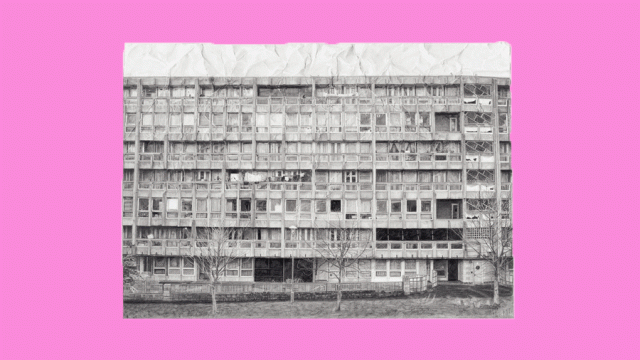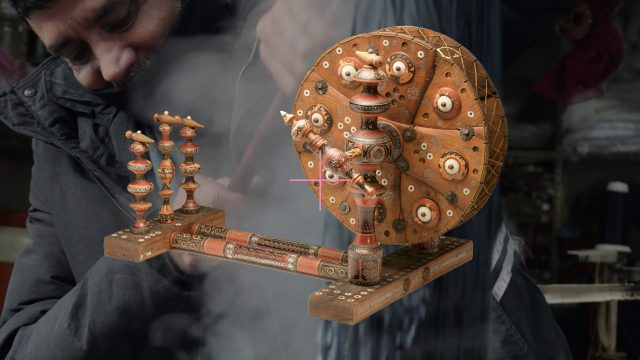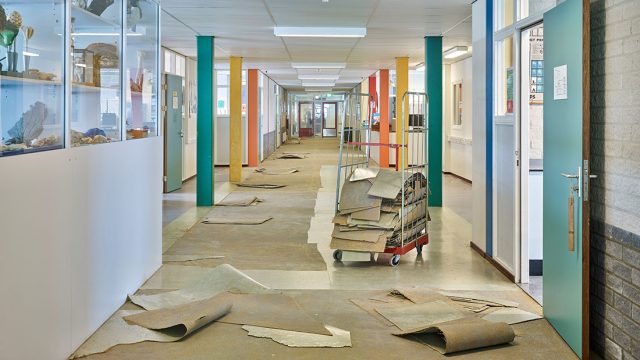As awareness around the consequences of climate change become more widespread, museums all over the world have been reviewing their approach to sustainability and environmental practices. Conversations in the sector are ongoing as to how radical systemic changes need to be made in order to have a real impact. The V&A has been reviewing its approach to sustainability, shifting focus from individual areas of work, to an organisation-wide call to action where responsibility is shared by all departments through three key frames: place, people and programme.
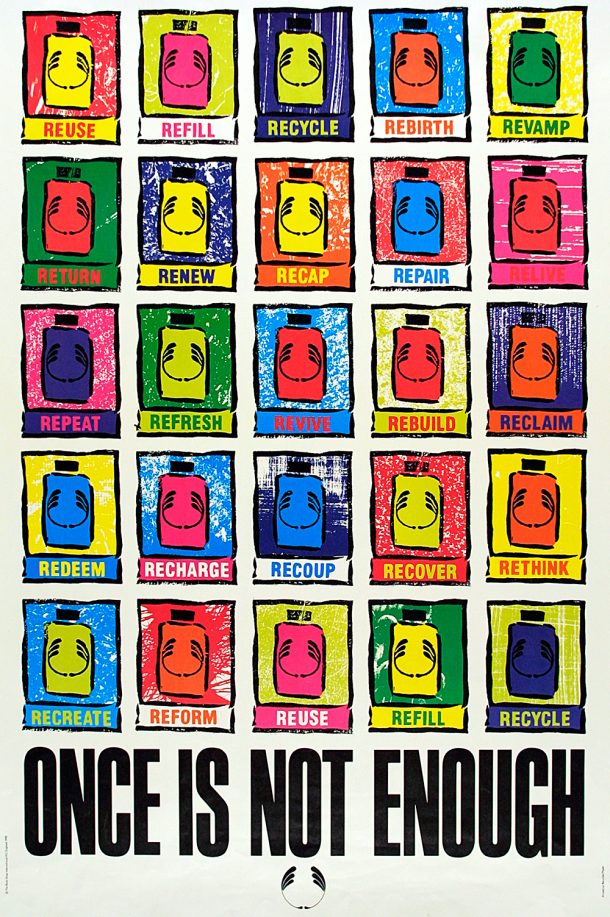
Like many other colleagues at the V&A, I have become increasingly concerned about environmental issues and sustainability. Alongside aiming to change my everyday personal behaviour, I also wish to carry this across into my professional life. As a museum learning professional I’ve been keen to investigate how sustainability can be embedded in the sector’s individual and collective practices.
Since starting my role, I have been inspired by staff-led initiatives such as the Anthropocene Reading Group and the Sustainability Coordinators – a network of staff volunteers who are committed to using their enthusiasm, creativity and expertise to embed sustainable practice across the V&A. Both provide thought-provoking spaces for colleagues to exchange ideas and resources on the topic of sustainability, across museums, creative practices and research.
Alongside this, I was particularly excited to learn about the V&A’s first Carbon Literacy training course, delivered by SOS-UK (Students Organising for Sustainability) between February and March 2021. Over three sessions, the course provided a strong action-led approach, raising awareness around the carbon costs and environmental impact of both individual actions and organisational behaviour. All participants were invited to reflect on their own power and sphere of influence.
I confess that, prior to taking this course, I was struggling to see how I could make a meaningful impact and give my personal contribution to the V&A’s sustainability policies as an Administrator for the Learning and National Programmes team. This training provided a highly practical approach which helped me identify the strengths and opportunities of my role, inviting me to put this into practice and come up with two carbon saving pledges designed to involve not only me, but also a group of colleagues.
As a result of the course, members of the Learning and Digital Programmes teams signed up to a carbon saving food pledge, committing to 1 – 2 days a week of eating vegetarian or vegan meals. Over a year, this will save 2.65 tonnes of CO2 — almost the same amount 10 hectares of woodland would need around 30 years to absorb!
While sustainability was something the Learning Department had been already thinking about, the past months have made this more urgent, strengthening the need for a collective effort. It therefore seemed logical that the next step in the sustainability commitment would be a substantial review of our supplies of educational resources, whilst also shifting towards a more sustainable approach to programming and sourcing workshop materials.
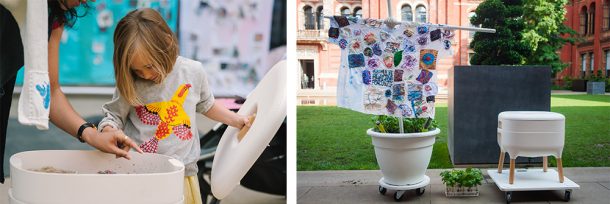
We are currently in the first phase of the project, which entails recycling or donating excess materials to local groups and charities. The second phase of the project will focus on reviewing the amount, type, provenance and purchase systems of the materials we use, coordinating the procurement of supplies across teams to reduce travel miles and waste as much as possible.
While we hear about climate change every day, it can be difficult for individuals to find opportunities to learn about its causes and take action. As a trusted organisation, we have an important role to play in using our collections to show historical origins and intersections between climate change and climate justice. Our Learning Department is committed not only to changing its ways of working but also to offering learning opportunities that empower all participants to play their part.
Find out about objects from our collections that have been made with recycled materials:
